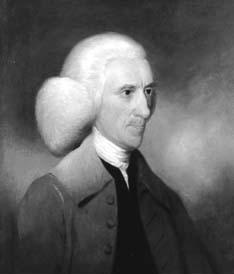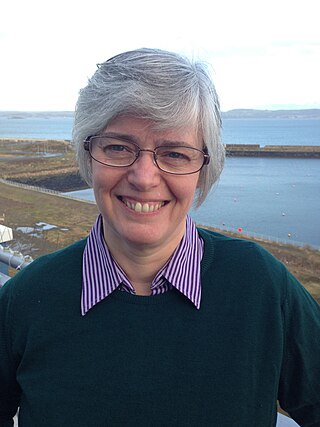Related Research Articles

The Royal Society of Edinburgh (RSE) is Scotland's national academy of science and letters. It is a registered charity that operates on a wholly independent and non-partisan basis and provides public benefit throughout Scotland. It was established in 1783. As of 2021, there are around 1,800 Fellows.

Catherine Dalling Taylor Stihler is a Scottish former politician who was chief executive officer (CEO) of Creative Commons from 2020 to 2023. A member of the Scottish Labour Party, she was a Member of the European Parliament (MEP) for Scotland from 1999 to 2019.

Professor Anneila Isabel Sargent FRSE DSc is a Scottish–American astronomer who specializes in star formation.

Fellowship of the Royal Society of Edinburgh (FRSE) is an award granted to individuals that the Royal Society of Edinburgh, Scotland's national academy of science and letters, judged to be "eminently distinguished in their subject". This society received a royal charter in 1783, allowing for its expansion.

Alexander Wilson was a Scottish surgeon, type-founder, astronomer, mathematician and meteorologist. He was the first scientist to use kites in meteorological investigations.

Dyslexia-associated protein KIAA0319 is a protein which in humans is encoded by the KIAA0319 gene.
Anne Elizabeth Magurran is a British Professor of ecology at University of St Andrews in Scotland. She is the author of several books on measuring biological diversity, and the importance for quantifying biodiversity for conservation. She has won numerous awards and honors, is regularly consulted for global assessments and analyses of biodiversity and conservation and her research is often highlighted by journalists.
Wilson Sibbett is a British physicist noted for his work on ultrashort pulse lasers and Streak cameras. He is the Wardlaw Professor of Physics at St Andrews University.

Eleanor Elizabeth Bryce Campbell FRSE FRS FRSC FInstP is a Scottish scientist who holds the Chair of Chemistry at the University of Edinburgh.

Jason Meredith Reese (24 June 1967 – 8 March 2019 was a British engineering scientist, and Regius Professor of Engineering at the University of Edinburgh.

Sharon Elizabeth Marie Ashbrook is a Professor of Physical Chemistry at the University of St Andrews. Her research is focused on the application of multinuclear solid-state NMR spectroscopy techniques as well as the combination of these techniques with first-principles calculations to investigate structure, order and dynamics of solid state materials.
Moira Mary Jardine is a British astrophysicist with an interest in young stars, particularly the structure of their magnetic fields and coronae, and the mechanisms by which they interact with their disks and planets. She was promoted to a Personal Chair in 2012, making her the first female professor of Physics at the University of St Andrews.
Susan RosserFRSB FLSW is a professor of Synthetic Biology at the University of Edinburgh.
Kevin Neville Lala is an English evolutionary biologist who is Professor of Behavioural and Evolutionary Biology at the University of St Andrews in Scotland. Educated at the University of Southampton and University College London, he was a Human Frontier Science Program fellow at the University of California, Berkeley before joining the University of St Andrews in 2002. He is one of the co-founders of niche construction theory and a prominent advocate of the extended evolutionary synthesis. He is a fellow of the Royal Society of Edinburgh and the Society of Biology. He has also received a European Research Council Advanced Grant, a Royal Society Wolfson Research Merit Award, and a John Templeton Foundation grant. He was the president of the European Human Behaviour and Evolution Association from 2007 to 2010 and a former president of the Cultural Evolution Society. Lala is currently an external faculty of the Konrad Lorenz Institute for Evolution and Cognition Research.
Carol Trager-Cowan is a Scottish physicist who is a Reader in physics and Science Communicator at the University of Strathclyde. She works on scanning electron microscopy, including Electron backscatter diffraction (EBSD), diffraction contrast and cathodoluminescence imaging.
Ruth King FRSE FLSW is the current Thomas Bayes' Chair of Statistics in the School of Mathematics at the University of Edinburgh, having held the position since 2015. Prior to this she held positions at the University of Cambridge and the University of St Andrews.
Michelle Luciano is a Professor at the School of Philosophy, Psychology and Language Sciences at the University of Edinburgh. Her research focuses on the use of twin studies to estimate genetic and environmental contributions to human behavior.She has conducted research on the relationship between Mediterranean diet and brain volume. She was awarded the Visiting Professor Award to visit Trinity College Dublin in June 2019. She was a lead researcher in a study which identified 42 genetic variants associated with dyslexia and that the genetic risk was similar between sexes, this project was in collaboration with researchers from Max Planck Institute for Psycholinguistics, QIMR Berghofer Medical Research Institute, and 23andMe.
Elizabeth Patton, Ph.D FRSE is professor of chemical genetics and group leader of Medical Research Council Institute for Genetics and Molecular Medicine (IGMM) Human Genetics Unit in Edinburgh, Personal Chair of Melanoma Genetics and Drug Discovery for a disease which kills 20,000 Europeans a year, and accounts for 80% of all skin cancer deaths. Her research into the genetic models and drug interactions testing, sharing international findings, is mainly using zebrafish in conjunction with the Edinburgh Cancer Research Centre. She holds a number of academic leadership roles in UK, Europe and international scientific bodies.
Sonja Catherine Vernes is a neuroscientist who is, as of 2022, the head of the Neurogenetics of Vocal Communication Research Group at the University of St Andrews. She holds a UK Research and Innovation (UKRI) future leaders fellowship. Her research investigates vocal communication between mammals. She was a laureate for the 2022 Blavatnik Awards for Young Scientists.
References
- 1 2 "Neurogenetics. Silvia Paracchini research group" . Retrieved 6 January 2024.
- ↑ "Being a woman in science: Changed times? – University of Edinburgh's Science Magazine". 27 April 2019. Retrieved 5 June 2019.
- ↑ "Dr. Silvia Paracchini - AcademiaNet". www.academia-net.org. Retrieved 5 June 2019.
- ↑ "Dyslexia gene is carried by 15% of population". BelfastTelegraph.co.uk. ISSN 0307-1235 . Retrieved 5 June 2019.
- 1 2 "Silvia Paracchini | Royal Society". royalsociety.org. Retrieved 5 June 2019.
- ↑ Papadatou-Pastou M, Ntolka E, Schmitz J, Martin M, Munafo MR, Ocklenburg O, Paracchini S (2020). "Human handedness: A meta-analysis". Psychol Bull. 146 (6): 481–524. doi:10.1037/bul0000229. hdl: 1983/f9605b8a-435a-4851-a329-948707b4e88d . PMID 32237881. S2CID 214768754.
- ↑ "European Society of Human Genetics: Young Investigator Award Winners". www.eshg.org. Retrieved 5 June 2019.
- ↑ "YAS Members - Silvia Paracchini". www.youngacademyofscotland.org.uk. Retrieved 5 June 2019.
- ↑ "Fellow of the Royal Society of Biology - University of St Andrews". risweb.st-andrews.ac.uk. Retrieved 5 June 2019.
- ↑ RSE The Royal Society of Edinburgh Directory 2019/2020. Edinburgh: The RSE Scotland Foundation. p. 47,203. ISSN 1476-4334.
- ↑ "Women in Science Exhibition". The Royal Society of Edinburgh. 15 April 2019. Retrieved 5 June 2019.